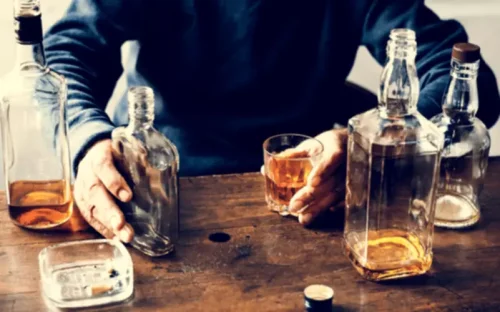
Our programs are flexible and customized to target your specific needs. We work with individuals, couples, and families to ensure that you and your loved ones are on the same page when it comes to your sobriety. Contact us to find out how we can help you navigate the does alcohol make you look older path to recovery and optimize your physical and mental health. At Lifetime Recovery in Mullica Hill, New Jersey, we can help you or a loved one suffering from alcohol abuse recover with our winning treatment solutions, and become free from the cycle of addiction.
Medical Problems
If your balance, sight, or reflexes are not what they were, accidents such as falls and vehicle collisions may be more likely to occur. In addition, reduced muscle mass and bone density increase the odds of severe injury. Retirement https://ecosoberhouse.com/ or a reduced ability to work can affect your income, and financial instability often increases stress. Drinking may seem like a way to ease your tension, but ultimately it just further worsens both your mood and financial situation.
- You no longer need to disrupt your life in order to start drinking less.
- Drinking alcohol may make you feel younger as you lose your inhibitions and gain some energy, but the hangover the next day can make you feel sick, sluggish, and downright old.
- If new limitations prevent you from pursuing your old hobbies, try taking up something new.
- But that system may indicate you’re still planning on drinking too much in one session and risking harm to your liver.
- Our brains normally start shrinking in middle age, but older people who drink too much show marked loss of volume in the frontal cortex, a 2018 study found.
Strategies to Protect Your Health if You Drink Alcohol

Specific times, such as weekends or evenings, might serve as a cue that it’s time to drink. You may instinctively reach for a beer when you come home from running errands. Or perhaps you feel compelled to drink anytime you’re with certain friends. Aging comes with an increased risk of serious health conditions such as cardiovascular disease, cognitive decline, or hearing loss. Health issues might lead you to despair or even ruminate on your own mortality. Drinking can seem like a way to escape from these difficult feelings or provide relief from chronic pain and discomfort.
- This leaves a larger amount of alcohol in your bloodstream.
- You may instinctively reach for a beer when you come home from running errands.
- This allows a toxic chemical into which alcohol is processed, called acetate, to build up in your liver.
- You might feel frustrated by their alcohol abuse or distressed about the potential long-term consequences.
- Mixing alcohol with opioids or benzodiazepines like diazepam (Valium) is one potentially deadly combination.
- People who drink may notice that they’re “feeling no pain” sooner as they get older.
It Can Dry Your Skin
- People typically see a progressive drop of collagen levels, which is an important structural protein as we age.
- Taking simple steps like staying socially active and wearing sunglasses can help slow down the aging process and improve your overall well-being.
- That is changing thanks to Northwestern Medicine research.
- If you have a habit of drinking every day, this might be a good way to reduce your alcohol usage.
Because you need water for almost every bodily function, including blood circulation and lubricating joints, you may feel the effects of aging more intensely if you drink regularly. Drinking alcohol may make you feel younger as you lose your inhibitions and gain some energy, but the hangover the next day can make you feel sick, sluggish, and downright old. Even if you don’t experience acute after-effects, alcohol can age you. You may not realize it, but alcohol and aging effects go hand-in-hand. As for what’s behind the changing physical response to alcohol, Andrades cites a couple of key factors, including decreased muscle mass (replaced by fat tissue) and reduced liver function.

Pounding water and electrolytes like I did when I was younger was no longer a fix. As we age, we often rely on prescription or over-the-counter medication to manage health conditions, whether it’s sleeping pills or pain medication or medication for depression or other mood disorders. Some of these medications can be dangerous when mixed with alcohol.
It Can Affect Your Heart
The same amount of alcohol is likely to have a bigger impact in your 60s or 70s than it did in your 20s. Here’s why one margarita could feel like two or three. In addition, if you “drink” more calories than you eat, that puts you at risk for nutritional deficiencies, which are also more common among the elderly. “Alcohol also compounds the sleep difficulties that are common after age 65,” notes Dr. Ford.


If being around a certain friend triggers your cravings, you can suggest outings that don’t involve drinking. Understanding your triggers can be extremely helpful in regaining control over your alcohol consumption. Triggers are familiar circumstances that guide you to take a specific action. They don’t force you to engage in a behavior, but they can subconsciously provoke a behavioral response — in this case, reaching for an alcoholic drink. But if you don’t have activities or interests to replace work, retirement can be a stressful time where you might feel bored or directionless. A loss of identity, status, or purpose can even contribute to feelings of depression in older adults.
